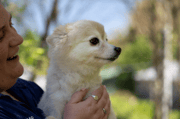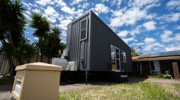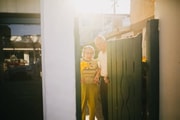
Camping is one of Australia's favourite pastimes—there's nothing quite like escaping the hustle and bustle, pitching a tent beneath the stars, and waking up to the sound of kookaburras instead of car horns. But as more people flock to the bush, some are taking the idea of 'becoming one with nature' a little too far—and local councils are cracking down hard.
If you're planning a trip to the great outdoors, here's a warning worth noting: failing to bring your own portable toilet could cost you a $300 fine.
Authorities are stepping up patrols to curb what they call 'disrespectful' behaviour that's not only unpleasant for fellow campers but harmful to the environment.
‘Crapping in their own nest’: Council calls for more respect from campers
The Shire of Dandaragan, which manages the Sandy Cape recreation area on Western Australia's Turquoise Coast, has had enough of visitors treating the bush as a bathroom.
In a tongue-in-cheek post, the council joked that rangers had 'discovered a new animal' that 'craps in its own nest.' But as Will Miller, the Shire's Manager of Operations and Community Safety, told Yahoo News, the problem is anything but funny.
'Whilst the Shire provides significant waste management facilities at Sandy Cape, some would prefer to share their private parts with the twigs and ticks that surround their campsites,' Miller said.
He added that the council had handed out several fines over the past year to people not bringing toilets to the site—something clearly stated in the booking conditions. 'As always,' Miller noted, 'a small minority like to ruin things for all.'
Rangers on early morning and late evening patrols
At least one council ranger patrols Sandy Cape every day, checking for illegal campers, no-shows, and those who refuse to follow the rules.
During the summer months, when visitor numbers spike, rangers spend even more time in the campgrounds. Patrols now run from the early morning through to late evening to deter antisocial behaviour.
Campers can face fines of $300 for not bringing their own toilet, and the council can also act under the Litter Act. The Shire has urged visitors to report any bad behaviour, since it's impossible for rangers to be everywhere at once.
Source: Facebook / Visit Turquoise Coast
'An unprecedented amount of human poo'
The issue isn't limited to Western Australia. Rangers in Tasmania have described an 'unprecedented' amount of human waste in national parks, particularly on popular walking tracks.
Wilderness ranger Olivia Hickey said she often ends up carrying out bags of waste from remote areas—a job she didn't expect when signing up to protect the environment.
In Queensland's Inskip Peninsula Recreation Area, authorities have introduced fines of up to $464 for similar offences after reports of increasing litter and waste.
Why it matters
It might seem harmless to 'go bush' when nature calls, but the environmental consequences are serious. Human waste can kill native plants, encourage invasive weed species, and pollute waterways.
Many camping areas, including parts of Sandy Cape, are near World Heritage–listed zones where even minor changes can have long-term effects on fragile ecosystems.
Simple fixes for responsible campers
The solution, as Miller and others have pointed out, is simple: bring your own portable toilet. They're widely available, easy to use, and range from basic bucket-style options to more advanced chemical toilets.
For hikers or remote campers, a sealed container—or even a 'poo pot'—can make it easier to pack out waste until reaching proper facilities.

Respecting the environment keeps these natural spots open and enjoyable for everyone. 'The camping options at Sandy Cape are designed to suit most respectful campers,' Miller said. 'But it only works if everyone does their part.'
Camping is about connecting with nature, not leaving a mess behind. By following the rules and showing a little consideration, visitors can help preserve Australia's wild beauty for future generations.
Have you seen this kind of behaviour at campsites? How do you handle waste when camping off-grid? Share your thoughts below—we'd love to hear how fellow travellers keep the bush clean.







